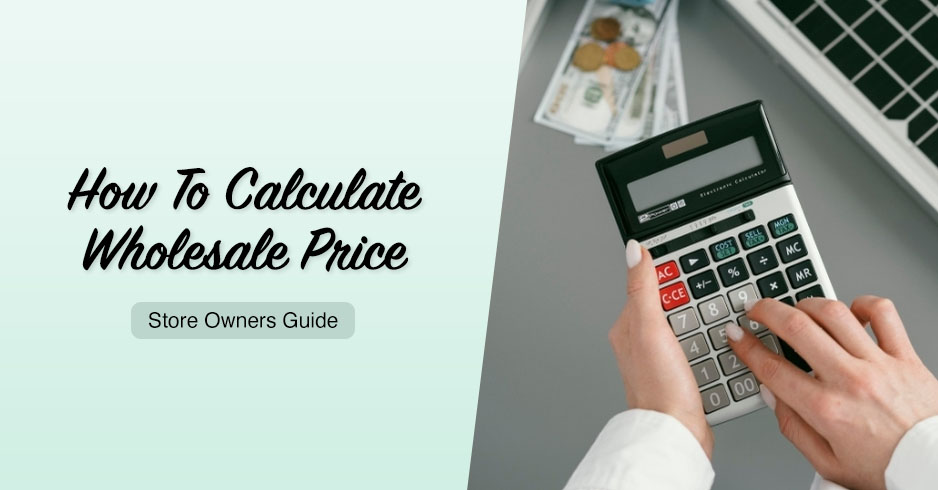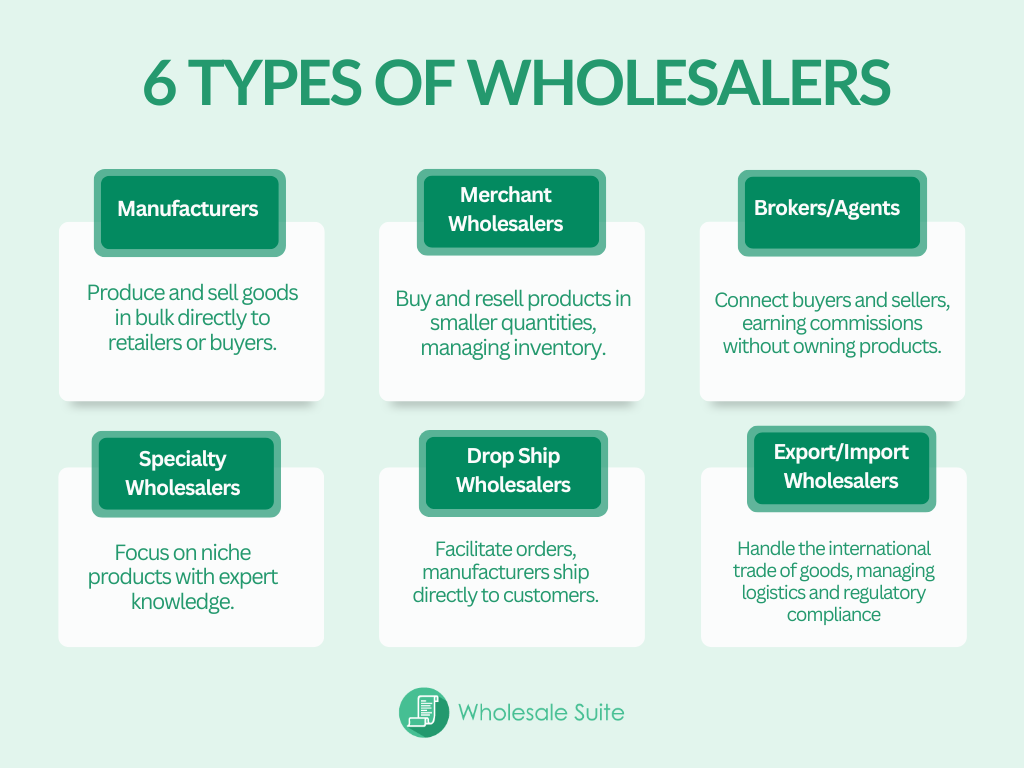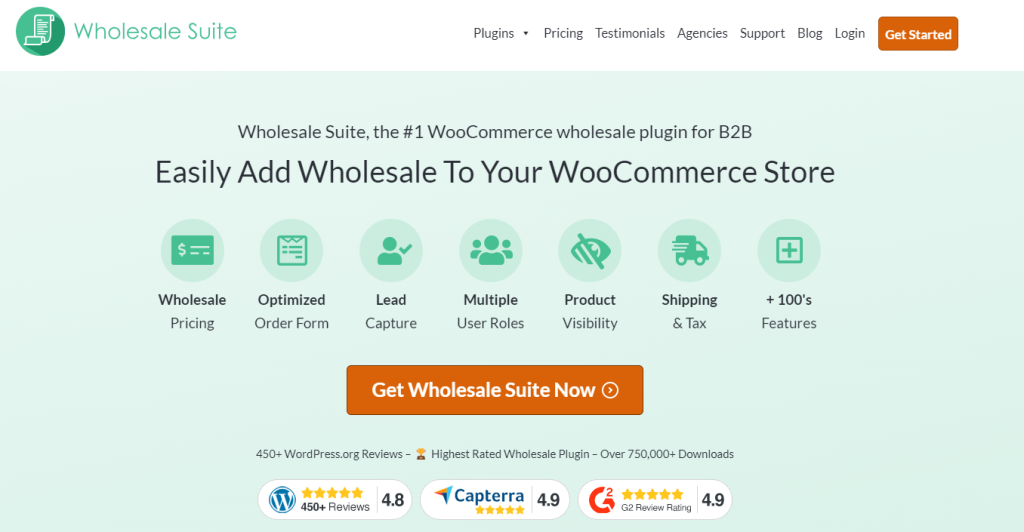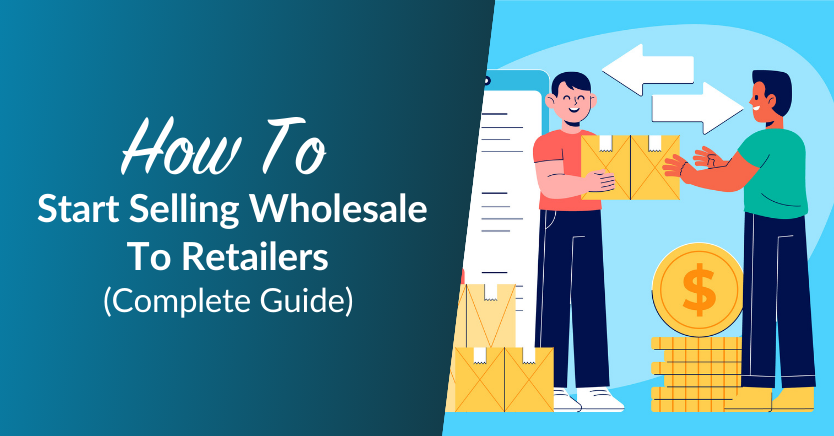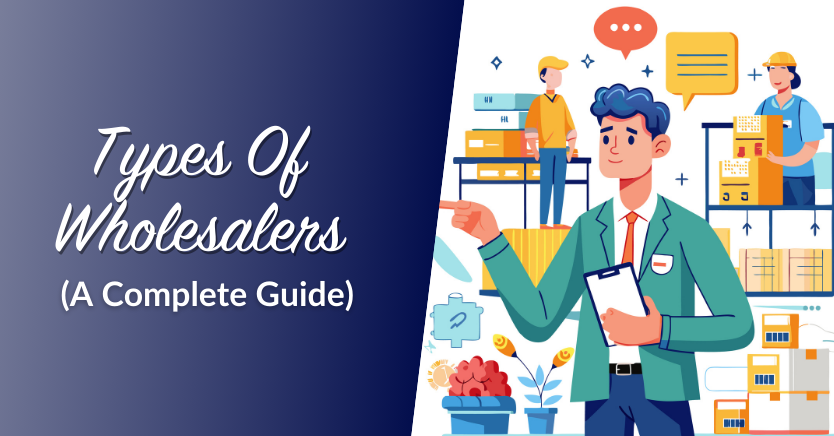
Do you want to venture into wholesaling? It’s a highly lucrative industry, projected to grow even more as e-commerce and global trade continue to expand. If you’re interested in tapping into this thriving sector, then understanding the different types of wholesalers is crucial. By doing so, you can choose the right business model that aligns with your goals and maximize your chances of success.
That’s exactly what we’ll dive into in this article. Each type of wholesaler plays a unique part in the supply chain and offers distinct advantages. We’ll help you understand how each model works, and introduce you to key tools, from big to small business apps, that will help you get a headstart in the wholesale industry.
Ready to learn? Then let’s get right into it!
What Is Wholesaling?
Wholesaling entails buying products in bulk, thus acquiring them at lower cost, and distributing them to retailers, suppliers, or even end consumers at times. This process plays an important role in the supply chain as it bridges the gap between manufacturers and retailers, streamlining the distribution of goods and making them accessible to end consumers.
6 Types Of Wholesalers
Now that we understand how wholesaling works, let’s dive into the different types of wholesalers!
1. Manufacturers
Manufacturers are the producers of products. They transform raw materials into finished goods at a large scale, typically in large production facilities. As the primary source of products, they play a critical role in the supply chain.
Manufacturers engage in wholesaling by selling products in bulk to suppliers, other wholesalers, and retailers. In some instances, they cut out the middlemen and offer products directly to end consumers. For example, a manufacturer of electronic devices (such as smartphones) might “wholesale” their products directly to large electronic retailers or specialized wholesalers who distribute to smaller stores.
2. Merchant wholesalers
Merchant wholesalers buy products in bulk from manufacturers, store them in their warehouses, then resell them in smaller quantities to retailers. This is the most popular form of “wholesaling”, and typically what most people think of when they hear the term.
These types of wholesalers “take ownership” of the products they buy from manufacturers. As such, they bear the risks associated with managing these products, including inventory, storage, and handling costs. Food distributors are a good example–merchant wholesalers can purchase bulk quantities of beverages or food items from manufacturers and distribute them to restaurants, supermarkets, and other smaller stores.
3. Brokers/agents
Brokers and agents are one of the more unique types of wholesalers–they act as intermediaries for buyers and sellers, but they don’t take ownership of the products, unlike merchant wholesalers. Instead, they connect two parties (wholesalers and other businesses), facilitate deals, and get a commission in return.
These types of wholesalers are valuable in industries where networks or specific expertise are important to match the right goods with the right buyers. For instance, in the pharmaceutical sector, brokers and agents play an important role in connecting manufacturers to hospitals, clinics, or healthcare centers.
4. Specialized wholesalers
As you might have guessed, specialized wholesalers offer specific types of products, catering to niche markets. These types of wholesalers differentiate themselves by curating the goods they offer for particular markets or consumer needs. They possess extensive knowledge of their chosen segment, making them a valuable resource to their buyers.
Specialized wholesalers add significant value to the supply chain, helping businesses access unique goods that may not be readily available from general wholesalers. For instance, a wholesaler may specialize in sourcing plant-based, organic, and natural food and wellness products, and then partner with restaurants or grocery chains looking for such options.
5. Drop ship wholesalers
Drop ship wholesalers facilitate the sale of goods without holding inventory themselves. Instead, they act as intermediaries between manufacturers (or other suppliers) and retailers. In this business model, the drop ship wholesaler takes orders from retailers and arranges for the manufacturers to ship the products directly to the end customers on behalf of the retailers.
This model streamlines the selling process–it eliminates the need for retailers to hold inventory. Dropshippers also add value to the supply chain by connecting manufacturers to retailers, other suppliers, and businesses. Leveraging this model allows retailers to offer a wide range of goods and scale their business without worrying about storage and inventory costs.
6. Export/Import Wholesalers
These types of wholesalers engage in international trade, buying and selling goods across geographical borders. Export/import wholesalers handle all aspects of international trade, including logistics and legal compliance. They ensure products move smoothly from one country to another, providing businesses with access to a diverse range of products from different parts of the world.
Export/import wholesalers are invaluable partners for retailers looking to expand their product line with international goods. By managing the complexities of cross-border trading, they reduce the risks and challenges associated with international transactions.
Functions Of Wholesaler
Wholesalers play an important role in getting products from manufacturers to stores. The functions of wholesalers help ensure that goods move smoothly through the supply chain. Let’s look at the key jobs wholesalers do.
1. Collecting goods (assembling)
One of the main functions of wholesalers is collecting products from different manufacturers and bringing them together in one place. This helps stores because they don’t have to buy from multiple suppliers, which makes the process easier and more affordable. Wholesalers also get better prices by purchasing in bulk, and manufacturers benefit because they don’t have to sell their goods in small amounts to different businesses.
2. Sending products to stores (dispersion)
Another important function of wholesalers is sending products to stores when needed. They break large shipments into smaller amounts, deliver goods to different locations, and make sure products arrive on time and in good condition.
3. Storing goods (warehousing)
Wholesalers also store products in warehouses until stores need them. This function of wholesalers helps prevent shortages, keeps goods safe, and allows businesses to prepare for busy shopping seasons. This way, stores always have the right products when customers are looking for them, which also gives a better direction for the supply chain.
4. Moving products (transportation)
Transportation is another key function of wholesalers. They use trucks, ships, and other vehicles to move goods from suppliers to stores. By shipping large amounts at once, they help lower costs and ensure products arrive safely and on time. This is especially important when goods need to be delivered across cities or even different countries.
5. Helping with payments (financing)
Wholesalers also help businesses with money matters. A key function of wholesalers is offering credit options, allowing stores to buy now and pay later. This financial support is especially helpful for small businesses that may not have the funds to buy products in bulk. For example, a wholesaler selling electronics may allow stores to make payments in installments instead of paying everything at once, which makes it easier for them to manage their finances.
6. Sorting and packing (grading and packaging)
Another important function of wholesalers is sorting and packaging. They organize products based on size, quality, and type, which makes it easier for stores to sell them. This ensures that customers always receive high-quality products that meet their expectations.
7. Setting prices (pricing)
Wholesalers also influence product pricing. This function of wholesalers allows them to set prices based on demand, supply, and market trends. They often offer discounts to stores that buy in large quantities which makes products more affordable for retailers and customers. By keeping prices steady, they prevent sudden changes that could make it harder for stores to plan their sales.
8. Taking risks (risk-assuming)
Lastly, wholesalers take on many risks. An essential function of wholesalers is managing risks such as price drops, product spoilage, and late payments from stores. To handle these challenges, wholesalers use strategies like insurance, proper storage, and careful planning to minimize risks.
How To Start Wholesaling
The wholesale industry is a lucrative market. According to industry insights, the wholesale market is expected to see strong growth in the next few years–reaching $68,092.65 billion by 2028 and boasting a compound annual growth rate of 6.5%.
There’s no better time than now to venture into this sector. And, with the rise and accessibility of e-commerce, it has never been easier to enter the market!
For instance, aspiring wholesalers can leverage popular e-commerce platforms like WooCommerce to set up their wholesale operations. WooCommerce provides a strong foundation for building up an online store, and plugins like Wholesale Suite make setting up your wholesale operations a breeze!
With our suite of powerful plugins, you can:
- Set and manage wholesale pricing easily: Create different pricing tiers for various customer groups, offer bulk discounts, and even configure free shipping options for wholesale customers.
- Provide bulk order forms on WooCommerce: Simplify the ordering process with a one-page bulk ordering form so customers can place large orders quickly.
- Capture wholesale leads effortlessly: Grow your customer base by creating custom B2B registration forms. Convert them into loyal wholesale customers by providing a streamlined registration process.
- Offer flexible payment terms to bulk buyers: Set up different payment options and terms, making it convenient for your customers to do business with you.
Want to start wholesaling in WooCommerce? We have a free guide you can check out here.
Additionally, here are some resources to give you a quick headstart:
If you want to have more insights on how you can headstart your wholesale business, you may read: Starting A Wholesale Business: 5 Important Factors To Consider
If you’re curious to know how you can expand your wholesale business to retailers, check out: How To Start Selling Wholesale To Retailers (Complete Guide)
Conclusion
Venturing into wholesaling offers several avenues to grow your business. There are different types of wholesalers, each playing an important role in the supply chain. In this article, we walked you through the six key types of wholesalers and their differences. To summarize, let’s review them below:
- Manufacturers
- Merchant wholesalers
- Brokers/agents
- Specialized wholesalers
- Drop ship wholesalers
- Export/Import wholesalers
Tools like Wholesale Suite make it easier for you to get a head start on your wholesale journey. With our suite of powerful plugins, you can manage all aspects of wholesale in WooCommerce, from pricing and bulk ordering to lead capture and flexible payment options.
Do you have any questions about wholesaling? Let us know in the comments section below!

